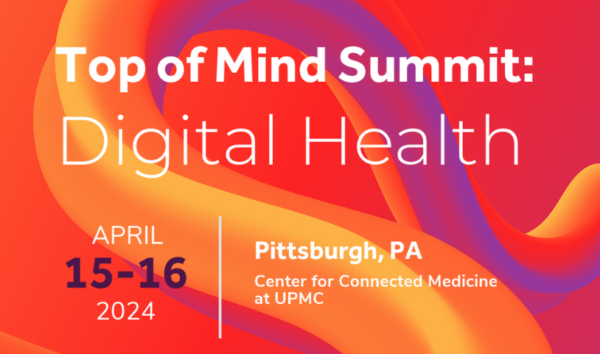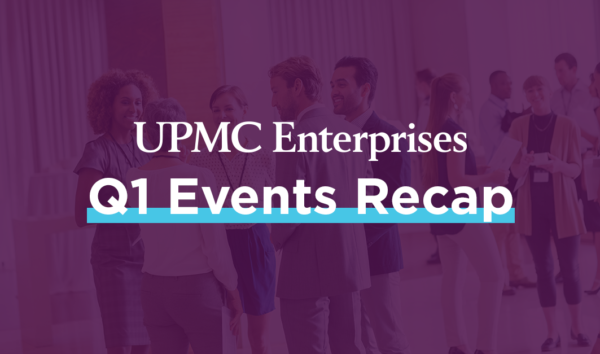Why toddler tantrums aren’t really that different from adult tantrums
Amy Cook joined UPMC Enterprises in 2015 as Chief Talent Leader after 16 years working in human resources in the technology space. The Pittsburgh-area native was an early employee of Internet auction company FreeMarkets in the late 1990s, eventually rising to lead human resources after the company was acquired by Ariba.

Cook, who earned a bachelor’s degree from University of Pennsylvania and a law degree from University of Pittsburgh, is leading a talent transformation initiative at UPMC Enterprises that has included a new talent acquisition process, establishing guiding principles, and overhauling the performance management program for employees.
We sat down with Cook to find out more about her background, what brought her to Enterprises, and what she learned from her first job.
You came to UPMC Enterprises without any experience in health care. What attracted you to the organization?
I know it may sound trite but when I walked into the offices at Bakery Square for the first time, it just felt right. It was open, not stuffy, very friendly and personable. And the talent was just amazing. I had worked with a lot of really smart people at Ariba and FreeMarkets. And each person I met with at UPMC Enterprises was smarter than the last – it was breathtaking.
Coming to UPMC Enterprises was similar to when I joined FreeMarkets when it was a startup. I like to build and create new things, which is an opportunity you have when you join a young organization.
And, finally, UPMC Enterprises presented an opportunity to work at a place that makes a difference in people’s lives every day, which was something that appealed to me.
I see you have a law degree. How did your career pivot to human resources?
I was really lucky! I went to law school thinking it would be a great background and education that would help regardless of the career path I chose. I spent the summer between my second and third year of law school as a summer associate at a great Pittsburgh-based law firm and accepted their offer to be a full time associate post-graduation. While I loved the people and the work was really interesting, I also looked ahead and saw what the lawyers five, 10, and 20 years ahead of me were doing and I knew that was not the future I wanted.
I left law and was a headhunter for lawyers for a couple of years. During that time, I reconnected with a friend who was one of the first employees at FreeMarkets and she suggested that I come and meet with people at the company. I met with at least 10 people, which was probably 25 percent of the company at the time. They were looking to grow quickly and took a chance on me in the People Development team. I ended up staying with the company through the FreeMarkets IPO, the dot-com bubble, the dot-com bust, and two acquisitions – of FreeMarkets by Ariba and of Ariba by SAP. Through those years, I took on additional responsibilities, starting in recruiting, taking on Global HR Business Partner leadership, and eventually running Global HR for Ariba.
UPMC Enterprises is competing against some big names in the tech world for the most skilled and talented workers – how do you make the pitch?
The trick to competing really isn’t the pitch. If we can get people to sit down and talk with us, we can show them that Enterprises is doing something different from most tech companies. People want meaningful, purposeful work that challenges them in an environment that inspires them and in which they feel that they can find success. UPMC Enterprises delivers on that. UPMC is where Life Changing Medicine Happens. And we win the “mission” game every time.
You’ve led a talent transformation process in the past couple years at UPMC Enterprises? What is the initiative and why are we doing it?
Our Talent Transformation project is part of our ongoing effort to align our people practices with the innovative, entrepreneurial culture at UPMC Enterprises. Our initial focus was on talent acquisition. We overhauled the candidate experience, from the look and feel of our recruiting site, to how candidates applied, to how we interviewed and selected candidates.
The second priority was to articulate the UPMC Enterprises mission and to define our guiding principles. Our mission, aligned with the mission of UPMC, is simple: to create products and businesses that make life changing medicine happen. To achieve this mission, we developed a set of guiding principles that reflect the way work gets done at Enterprises. The five principles are Curious, Accountable, Intense, Collaborative, Customer-Centered, and Disruptive.
Currently, we’re overhauling how we think about and deliver feedback to our team members. We’ve launched our enhanced performance management experience to enable the transition to a true culture of feedback that is more frequent, productive, development-focused. We’re focused on delivering constant coaching and feedback because that’s the way that people grow and improve.
What was your first job and what did you learn from the experience?
When I was in high school, I was a babysitter and I taught children to play tennis. From these I learned patience, patience, and patience, which is something I still need to work on. I also discovered that people play, learn, grow, and relate in very different ways. And because of that, your approach to how you deal with them should bend and morph.
From working with children and adults I’ve come to realize that workplace tantrums are not very different from toddler tantrums. Seriously, pointing out that someone may be emotional or unreasonable in the heat of something that they feel passionate about is never a good strategy. People want to be heard, to be understood, and to be taken seriously. Treats work well, too.
Also, laughter and joy are an important part of every day. And you cannot ask enough times if anyone needs a bathroom break.



